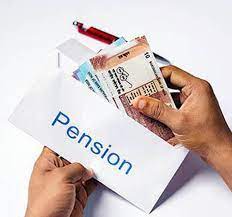Old is not gold: On the return to the old pension scheme
The old pension scheme works as electoral strategy but is imprudent fiscal policy
With the freshly minted Chief Minister of Himachal Pradesh, Sukhvinder Singh Sukhu, reiterating that the Old Pension Scheme (OPS) will be restored by the newly elected Congress-led government, the State would now become the fourth to do so. It is no surprise that the promise of the return of OPS — it guarantees pension at 50% of the last drawn basic pay — boosted the beleaguered party as government employees and retirees form a significant portion of the hilly State’s electorate. A Lokniti-CSDS post-poll survey supported the fact that awareness (74% of those surveyed) and support for the Congress’s promise was high (70%), possibly playing a role in the party pipping the BJP to pole position — there was a single percentage point difference between them. Government staffs seem to prefer the scheme as it allows them to avert their contribution of 10% of their basic pay and dearness allowance towards the employee pension funds, as envisaged in the National Pension Scheme (NPS) since inception in 2004. But, concomitantly, reverting to OPS will tax the State’s exchequer. Data show that pension payments form nearly 25.6% of States’ own tax revenue — 80% for Himachal — but fall to close to a still substantial 12% of the total revenue receipts of States. Along with wages and salaries of government staff, the burden is set to be quite high.
States reverting to OPS can achieve some short-term gains as they need not put up the matching contribution of 10% towards employee pension funds. But with a greying population, the burden of payments will fall on future generations. An argument can be made for enhancing State revenues by further taxation to fund the scheme. The NPS, that has been in place and which allows employees to contribute to their pension corpus from their salaries with matching contribution from the government, is more robust as this corpus is invested through Pension Fund Managers and eases the State’s burden. The NPS has built a substantial corpus and subscriber base over time. The Congress-led UPA government had indeed taken forward the pension reforms by the previous NDA regime and this is how the NPS has become relevant over the years. Breaking a consensus on pension reforms and reverting to OPS amounts to an imprudent option as it will only benefit organised government sector employees, increase the fiscal burden of carrying these payments and take up a significant portion of the State’s budget, thereby curtailing its outlays on general welfare as a whole. This holds good even if it allows for short-term electoral dividends and caters to those who form the backbone of the government machinery
